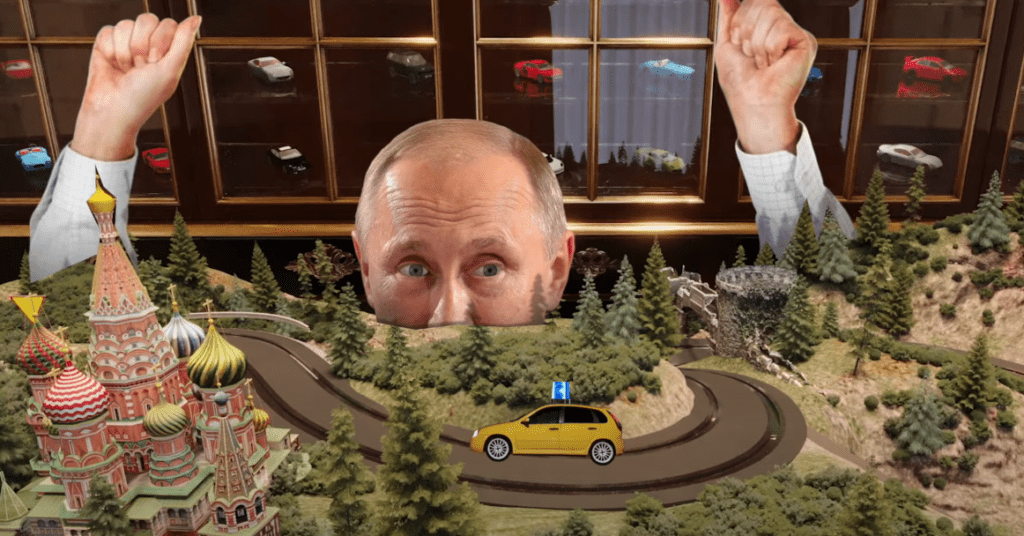The iconic Ukrainian/Russian comedian Mikhail Zhvanetsky once wrote that “a low quality of life nurtures a high quality of humour.”
In his own words, “under totalitarianism, the comedian’s brain has to function better.” Under the Soviet regime, Zhvanetsky’s witty jokes were the expression of popular grievance camouflaged in his humour. Humour was an exceptional gateway to express these grievances publicly without facing repercussions, so the bar for Soviet comedians who managed to do that was quite high.
Expressing some hope for better times after the collapse of the Soviet regime, Zhvanetsky jokingly added: “today’s humour [in Russia] has definitely gotten much worse. So does that mean that...? Well… Possibly…” Whether or not one can draw a direct line between humour and repression is hard to say. (After all, British humour is world-famous and is now apparently sorely missed in EU Parliament debates). But what is certain is that humour has always been a powerful tool in the political arena.
It was through a humoristic tone that Russian opposition leader Alexey Navalny exposed Vladimir Putin’s lavish “palace” in an investigative video he published on YouTube. The video, and especially the poisoning and detention of Navalny himself, sparked wide-spread protests across Russia.
But while protests against the regime itself are not new in Russia, the reasons to ridicule the secretive Russian president personally are quite scarce. The protests themselves can be cleared off the streets by force, but the proliferating memes and songs about Vladimir Putin’s ‘aqua disco’ will be harder to get rid of in the near future.
In a piece I wrote in December, I argued that authoritarian leaders thrive on mysteries and secrets. Their power wanes when their mysteries are dispelled, but even more so when this is done with ridicule and humour. Dispelling secrets with comedy is a double attack because jokes themselves are secrets in their own right: they are funny only when they speak about something indirectly. The joke has a double message because its real target is always hidden behind words or images but never directly mentioned. Without its camouflage, a joke is just plain information but no longer a joke.
Of all the means of criticism, authoritarian leaders are especially allergic to satire.
In 2014, before the release of the American comedy film “The Interview” ridiculing Kim Jong-un, North Korea threatened the US with an actual war. But while a real war luckily didn’t happen, Hollywood was heavily cyber-attacked by the North Koreans, exposing some embarrassing facts on many Hollywood stars. Under domestic pressure, the movie was eventually barred from being released in theatres and was only allowed to go online.
Some years later, the German comedian Jan Böhmermann almost singlehandedly derailed the EU-Turkey migration deal when he made fun of Turkish President Recep Tayyip Erdogan who demanded the comedian’s prosecution in Germany.
Donald Trump also showed some dictatorial inclinations when he sued comedian Bill Maher who jokingly questioned whether the former US president spawned from an orangutan.
While comedy is not taking itself seriously, it is nevertheless taken very seriously by political leaders. Nietzsche wrote “objection, evasion, joyous distrust, and love of irony are signs of health; everything absolute belongs to pathology.”
Zhvanetsky was neither a politician nor a philosopher, but the difference between the two is simple, he said, “a politician doesn’t communicate his thoughts to you - he is guessing yours.”


